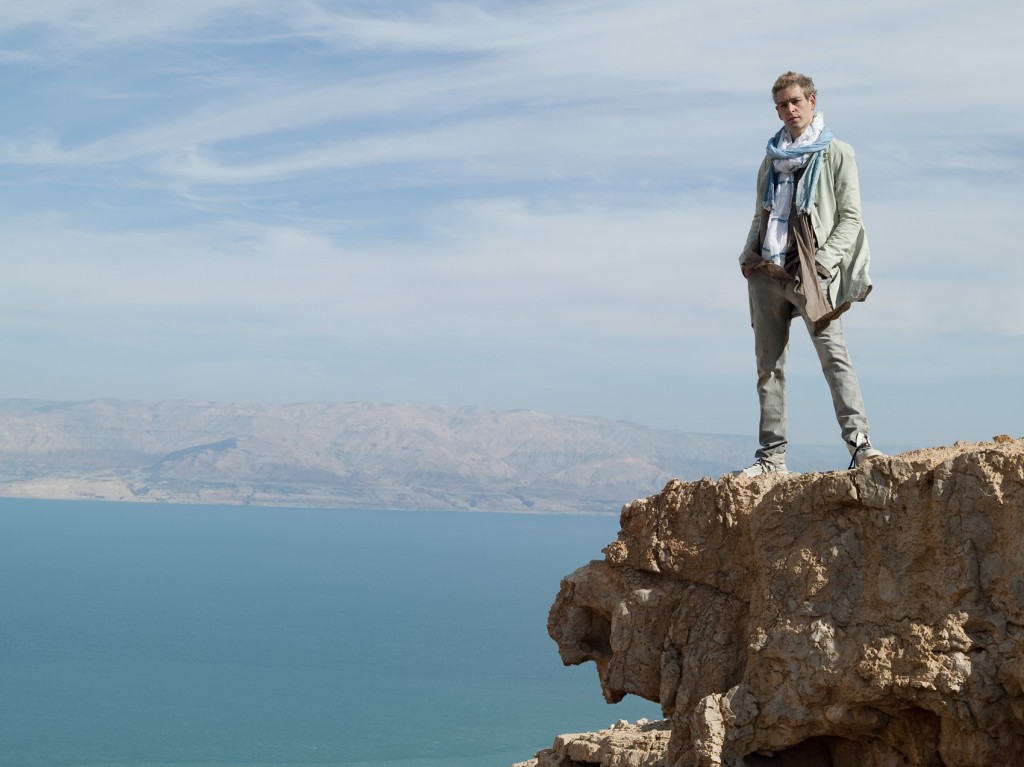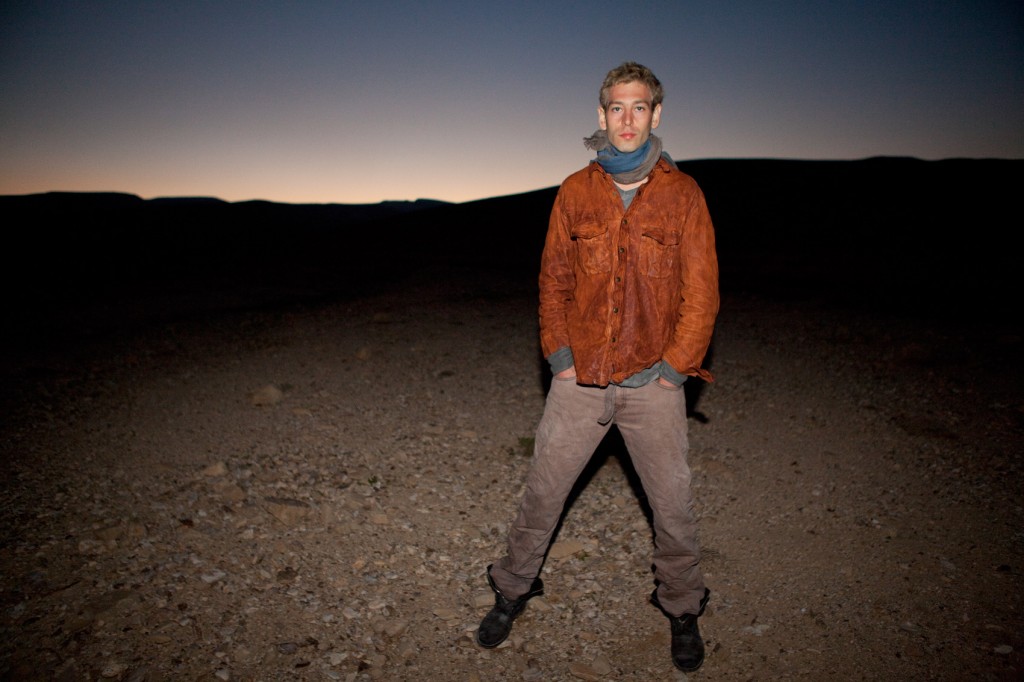Exclusive Q and A: Matisyahu Talks Seeking, Soothing, and Spirituality
posted in: Exclusive Interviews
 Since his initial breakout in 2005, Matisyahu has become almost as famous for his music as for his unique identity as the only major Hasidic Jewish reggae star. Yet, keeping up such a recognizable outward appearance can be taxing, especially in an industry that can demand extreme consistency from its best-known stars. So it was with an apparent great sense of relief that Matisyahu tweeted a surprising new picture of himself this past winter. He had shaved off his trademark beard, and was without a kippah and his traditional Hasidic garb. Since then, Matisyahu has been making more than just superficial changes. His latest album Spark Seeker signals a revolution in his sound, swapping dark dub-influenced reggae for bright, crisp beats and arena-sized synths. We recently got the chance to sit down with Matisyahu to chat about his new album, his new look, and his thoughts on music’s power to heal.
Since his initial breakout in 2005, Matisyahu has become almost as famous for his music as for his unique identity as the only major Hasidic Jewish reggae star. Yet, keeping up such a recognizable outward appearance can be taxing, especially in an industry that can demand extreme consistency from its best-known stars. So it was with an apparent great sense of relief that Matisyahu tweeted a surprising new picture of himself this past winter. He had shaved off his trademark beard, and was without a kippah and his traditional Hasidic garb. Since then, Matisyahu has been making more than just superficial changes. His latest album Spark Seeker signals a revolution in his sound, swapping dark dub-influenced reggae for bright, crisp beats and arena-sized synths. We recently got the chance to sit down with Matisyahu to chat about his new album, his new look, and his thoughts on music’s power to heal.
OS: In an interview with WNYC earlier this year, you mentioned that “several things” led to your decision to shave your beard, but you didn’t really go into what exactly they were. What was it that led to your change in mentality and appearance?

M: I would say that it was an evolving experience. It was something that I had thought about many times. My decision to keep it in the first place was a big part of my life, which came from a situation when I was auditioning for a commercial and was just becoming religious. I hadn’t shaved, and they asked me to shave for it, so I went to speak to a couple of rabbis. Each one had a different answer, and I ended up becoming closer with the rabbi who was more strict. From that point on, it became less of a choice of mine than a situation in which I was conforming my own logic to the ideology. But over time, my intuition and my own sense of right and wrong began to grow into their own, and I didn’t feel that I needed to follow rules that weren’t based on my own sense of right and wrong or my own sense of what I wanted to do with my life.
OS: So it was very much a decision in which you followed your internal compass instead of submitting to ideas that were imposed upon you from the outside world.
M: Exactly. That’s the basic idea of what has happened to me. Initially when I became religious it was my own quest and my own decision. I was doing things that were meaningful to me. At a certain point, I think, there was definitely a shift. This is just another state in the evolution of that shift forward.
OS: You’re obviously a very thoughtful and reflective person working in an industry which, at its worst, can champion self-importance and egotism. How do you balance your personal philosophies with some of the contrasting values of the music business?
M: To speak to the matters of the ego, I certainly feel more in the role of a servant with the music. I feel that, while it’s a unique thing, a special thing, and something that gets attention and attraction, to me it is a service in which I feel a responsibility to live my life in a certain way in order to have something to share with people musically. I think that when you’ve been down and out, or have struggled or suffered, there’s a certain sensitivity that you have for others who are struggling. When you create something, any art or music, that can soothe the souls of people who are going through difficult times, to me, that is a service. That’s what music is all about. I think I just shield myself from all of the other garbage that can come with being a musician or a rock star.
OS: Is the idea of your music serving as a source of comfort for others related to all of the light imagery on Spark Seeker. Of course, the single is called “Sunshine,” and your previous album was named Light. What’s the importance of that imagery and what makes you return to it in different ways?
M: Honestly, I didn’t have a strong name for the last record. I didn’t know what to call it, and that name popped up and that’s just what it became. To me, there wasn’t too much emphasis on the name, except that I felt the pinnacle moment is during the song “I Will Be Light,” where there is a bridge with the lyrics “You’ve got one tiny moment in time / For life to shine / To burn away the darkness.” I guess that’s a theme that I come back to a lot in my life. For this record, the name came up very early on in the process and I knew that was going to be the name. I felt that this one is more personal, in a sense. It’s less about the concept of light, and more about the search, the journey, and the ups and downs. Even though it has a core to it that is very light and full of this sense of love, it also has its darker and more mysterious moments as well.

OS: You definitely bring a lot of profound concepts to the album, like the dual nature of every experience in life and the impermanence of being. In turn, how do you want listeners to approach the album, and what do you want them to take away from it?
M: It’s kind of related to the music’s ability to sooth others that I mentioned before. My last son was born on the birthday of Lubavitcher Rebbe, and was named Menachem after him, which means soother. I feel there is a soothing quality to music. In a life that was at times disconnected or disjointed, music was always a way to make sense of the world around me, and it was a window to experiencing deeper realities. That’s what I aim to create and what I hope people can take away from it as well.
OS: It seems like you achieve this goal through a lot of different methods on the album, and especially through your use of new sounds. Vocoder appears very prominently on some songs, and there are a lot of heavy synths as well. What drew you to using those new and adventurous textures this time around?
M: We live in a technological, digital age. This has penetrated music as well. To me, this record started out coming from that place. It was me and Kojak, the producer, sitting around a computer and keyboards and creating the songs. The sounds were great. There are some beats that are really crisp and crunchy, with a lot of melody and harmony, and a lot of big synth sounds. I love all of the elements of the music that we tapped into. The direction that my music goes can really depend on the producer or the musicians that I’m working with. My band, for example, will go in sludgier, darker territory, with more dub, reggae, and rock sounds. However this record, because of who I was working with, took on almost a ’90s hip“hop sound. Even though the sounds are very unique, with the blending of Middle Eastern music, it all comes back to the beats on this record. I’ve always wanted to make a record that is written like a rap album.
OS: Those Middle Eastern folk influences do sound very unique on the album. They also often appear in short coda-like segments at the end of several of your songs. Was there any particular reasoning behind placing them at the end, as you did?
M: We recorded some really great material in Israel that I thought blended really well with the songs. We blended the instruments into the tracks that we had been working on, and then in some of them we wanted to create this type of story. By having interludes going on in between the songs, I thought it would feel more like a single story, which is notable in today’s single-driven market when people tend to use multiple producers or get tracks from multiple places. I feel like those interludes contributed to the record feeling like a single, unified piece.
Matisyahu’s new album Spark Seeker is out now. Check out the video for the latest single “Sunshine” below.
